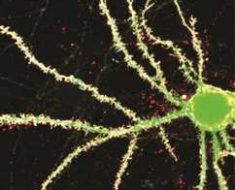Dr Dawn Harper on signs of vitamin B12 and vitamin D deficiency
We use your sign-up to provide content in ways you’ve consented to and to improve our understanding of you. This may include adverts from us and 3rd parties based on our understanding. You can unsubscribe at any time. More info
Vitamin B12 is needed to prevent two major syndromes; neuropathy and anaemia. Without it, damage to the nerves can trigger a cascade of bodily changes. In a great number of cases, however, physical signs are preceded by neurological issues. One man’s case report highlights which neurological symptoms a patient may expect from declining B12 levels.
Vitamin B12 is used by the body to help folic acid in regulating the formation of red blood cells and assist in the utilisation of iron.
In addition, B12 prevents nerve damage by promoting the growth of fatty sheaths that cover and protect the nerves.
Because it is also closely linked to the production of acetylcholine, a neurotransmitter that assists memory and learning, neurological symptoms are common in vitamin B12 deficiency.
In 2021, The American Society for Clinical Laboratory Science gave a detailed account of a middle-aged white man’s symptoms before he was diagnosed with vitamin B12 deficiency.

The report stated: “Our patient is a previously healthy 56-year-old white man who presents with progressive neuropathy and declining mental status over several months.
“The patient initially developed numbness of his fingertips and the balls of his feet and began to lose motor control of his hands.”
According to the report, this manifested as dropping objects or flinging them as he tried to pick them up.
It is commonly seen that vitamin B12 patients experience trouble walking or suffer from diminished reflexes as a result of numbness.
The authors added: “As symptoms progressed, he had visual tracking problems that were severe enough to interfere with driving a car, and he developed short-term memory loss and slowing of cognitive function.”
Visual tracking essentially refers to the ability to efficiently move the eyes from the left to the right, or focus objects as they move across a person’s visual field.
Visual disturbances – a common characteristic of vitamin B12 deficiency – result from the optic nerves leading to the eyes becoming damaged.
When the nervous signal that travels from the eyes to the brain is disturbed, a person’s vision will become increasingly impaired.

Based on further laboratory findings, the patient was eventually diagnosed with psychomotor regression due to vitamin B12 deficiency.
The rare condition is characterised by the onset of neurological deterioration which eventually progresses to severe intellectual disability and other complications.
Patients tend to experience a slowing down of thought before noticing a deterioration of physical movement.
The good news is that addressing the underlying cause will usually correct the regressive behaviour.
Unfortunately, however, vitamin B12 deficiency can be hard to diagnose since symptoms are usually vague and lab test results often produce equivocal results.

Someone who adopts a strict vegetarian or vegan diet may not see symptoms of vitamin B12 deficiency arise for some time.
This is because once B12 enters the liver, the body can store up to five years’ worth, which explains why deficiency symptoms are so slow to develop.
In the patient’s case, homocysteine levels were normal, and signs of anaemia were absent, despite low B12 and neurological symptoms.
After being treated with vitamin B12 injections, the patient’s symptoms resolved rapidly.
Source: Read Full Article





